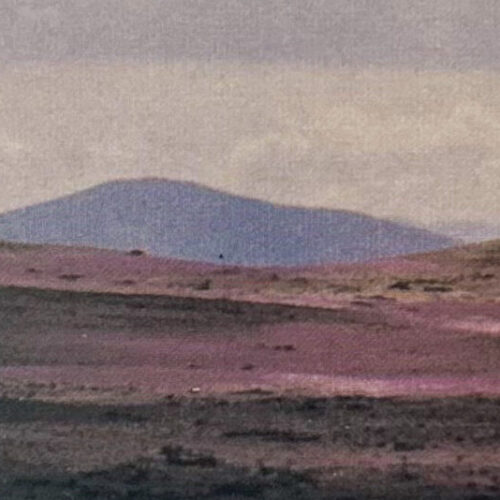Claes Oldenburg’s Giant Fagends (1967) looms like a monument to all our beautiful ruins. The urethane foam cigarettes sprawl across their stark white ashtray—each one as big as my father’s forearm when he lay in the hospital bed, tubes snaking from his collapsed lungs. I stand here thinking how we measured his last years in cartons and packs, in morning coughs that shook the breakfast table, in the lighter clicking shut like a tiny coffin lid.
My mother quit the day they found the shadows in his chest X-ray, crushed her last pack in the parking lot of Mount Sinai. But I’d still catch her sometimes, in the garden she’d planted to keep her hands busy, breathing in the neighbor’s second-hand smoke like a communion. The wind would carry it over the fence, and she’d close her eyes, tilt her head back—a supplicant at the altar of what kills us.
Oldenburg knew something about desire when he made these massive butts, how want grows larger than ourselves. Each filter is a diary entry of need, each torn paper edge a confession. In the museum’s controlled air, they seem to breathe—175 pounds of crushed hope and habit, more than my father weighed in his final week when the cancer had finished consuming him from the inside out.
I circle the installation three times, counting cigarettes like rosary beads, like the prayers my mother whispered in the oncology waiting room. She wore nicotine patches then, layers of them, as if she could absorb enough to share his craving, to take some of the hunger that had hollowed him out. The doctors said it was too late to matter if he quit, so we watched him smoke on the hospital roof in his thin cotton gown, the cigarette trembling between yellowed fingers like the last autumn leaf that refuses to fall.
What Oldenburg couldn’t capture in his soft sculpture was the sound—the wet rattle of my father’s laugh in the end, the whisper of my mother’s fingers running over his wedding ring, loose now on skin stretched tight over bone. Or the way she started smoking again the night after the funeral, standing in their bedroom with the windows open in December, letting the smoke and her grief spiral up into the dark, each cigarette a step toward the same ending that took him. I found her Marlboro butts in her potted orchids for months after, tucked away like secrets, like love letters to the dead.
Now, watching other museum-goers drift past Giant Fagends, I see how art transforms our destruction into something we can bear to look at. These massive cigarettes, soft and almost playful in their grotesque scale, let us stare directly at our complicated loves—how we cherish even the things that break us.
My mother survived my father by five years, four months, and thirteen days. When they found her cancer—different from his, but born from the same burning habit that had claimed him, just as hungry—she laughed and said, “At least I got to finish the pack.” In her last week, delirious with morphine, she kept trying to reach for something just beyond her fingertips. I like to think it wasn’t a cigarette she was grasping for, but my father’s hand, stretched out across whatever distance separates their kind of gone from our kind of here.
Standing in the Whitney now, I reach out to touch one of Oldenburg’s giant cigarettes. The surface is cool and yielding, nothing like the rough warmth of my father’s fingers or the papery softness of my mother’s cheek. But something in the gesture feels the same—this human need to reach out, to touch what hurts us, to make art from our beautiful, terrible habits of love.

Dana Wall
Dana Wall traded balance sheets for prose sheets after keeping Hollywood's agents and lawyers in order. With a Psychology degree for character building and an MBA/CPA for plotting with precision, she earned her MFA from Goddard College. Now writing full-time, her many published works mark milestones in her journey from numbers to words. website: danawallwriter.com



